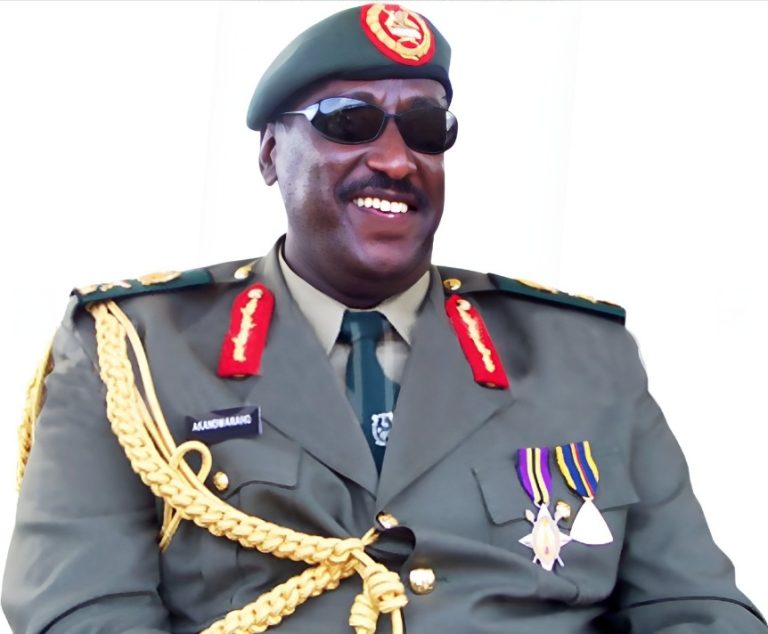In Uganda’s modern history, few figures have straddled the shifting lines between war and peace, power and community, influence and controversy as seamlessly as General Salim Saleh. To many, he is the battle-hardened commander whose strategies in the bush war helped shape the nation’s political order. To others, he is the pragmatic negotiator who traded the language of rifles for that of reconciliation, agriculture, and grassroots enterprise. His life has unfolded alongside Uganda’s own journey from the chaos of conflict to the complexity of a fragile peace, and in every chapter, he has been both a participant and a witness.
From dusty rural classrooms to rebel training camps in Mozambique, from the tense frontlines of the Luweero Triangle to the corridors of Parliament, Saleh’s path has been defined by abrupt turns and improbable transitions. It is a story that begins in the quiet of Ntungamo District and stretches across decades of national upheaval, personal reinvention, and public service. What emerges is not the portrait of a simple soldier or politician, but of a man whose identity has been shaped by the hard lessons of war, the compromises of peace, and the unpredictable demands of leadership in a country still negotiating its place in the world.
On January 14, 1960, in the quiet hills of Ibare, Rushenyi County, Ntungamo District, a child was born who would later stand at the center of Uganda’s most defining political and military events. Caleb Akandwanaho, later known throughout the country as General Salim Saleh, entered the world after a nine-year period in which his mother had borne no child. His birth at the age of forty-two was considered by his mother, Esteeri Kokundeka, to be a miracle. She gave him the Runyankore name Akandwanaho, meaning “God is my defender.” His father, Mzee Amos Kaguta, also bestowed upon him the name Jerwanira, meaning “boldness.” These names, given in faith and hope, would later reflect the tenacity and courage that marked his career.
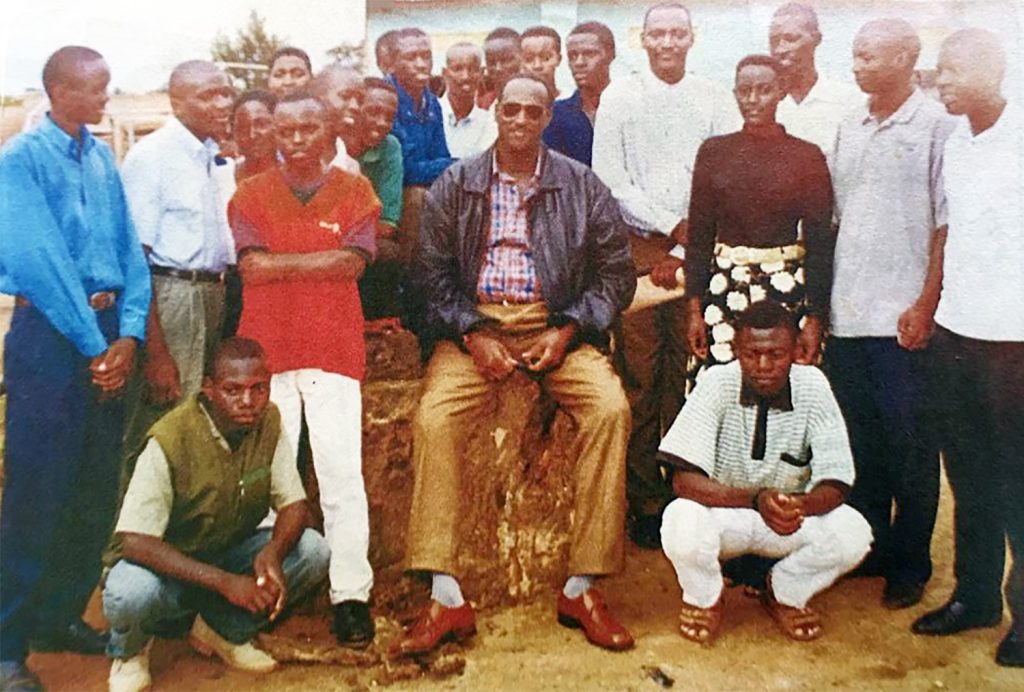
Saleh was the fourth child in a family that included his elder brother, Yoweri Museveni, who would become President of Uganda, and his sister Violet Kajubiri Froelich. The Kaguta household lived through cycles of hardship and resilience. In the years following his birth, the family relocated from Ntungamo to Kashari in Mbarara District, seeking better pastures for their cattle. The move, however, coincided with drought conditions and livestock disease, causing both economic strain and personal loss, including the death of a younger brother shortly after birth. These early challenges fostered a spirit of endurance and adaptability in the young Saleh, while strong family bonds and cultural traditions provided a grounding influence.
He began his education at Rwankanja Primary School in Kashari at the age of five. When the family moved to Rwakitura in 1968, he continued at Rushere Primary School before attending Mbarara Junior School. He completed his Primary Leaving Examinations in 1975 at Kako Junior Primary School. Recognized as a capable student, he entered Kako Secondary School in 1976 to pursue his O-Level studies, following the advice of his sister Violet Kajubiri, then a teaching assistant at Makerere University.
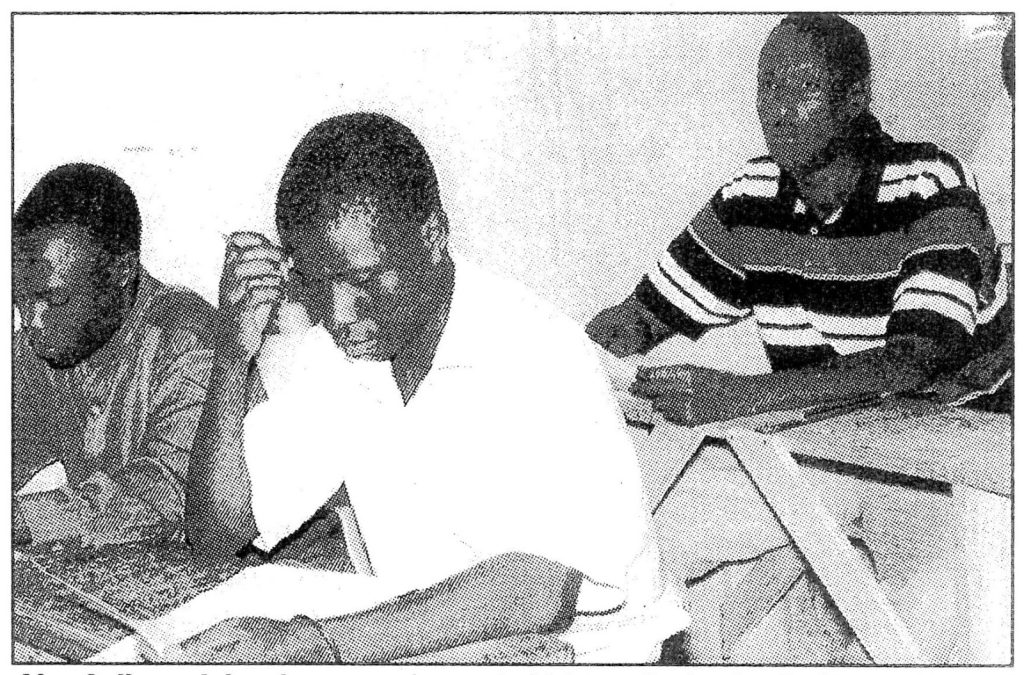
History, however, intervened. Uganda was under the rule of President Idi Amin, and political tensions were high. At the age of sixteen, Saleh left formal schooling and travelled to Tanzania to join Museveni’s resistance movement. Soon after, he journeyed to Mozambique where he undertook military training with Ugandan exiles in Montepuez under the support of the FRELIMO government. Among his comrades were figures who would later become senior military leaders, including Ivan Koreta and Fred Rwigyema.
When Amin’s regime collapsed in 1979, Saleh was commissioned as a second lieutenant in the Uganda National Liberation Army. Political divisions within the army, and his known affiliation with the Front for National Salvation (FRONASA), led to postings in remote locations. The 1980 general elections, widely viewed as flawed, returned Milton Obote to power and spurred Museveni to launch a new armed struggle.
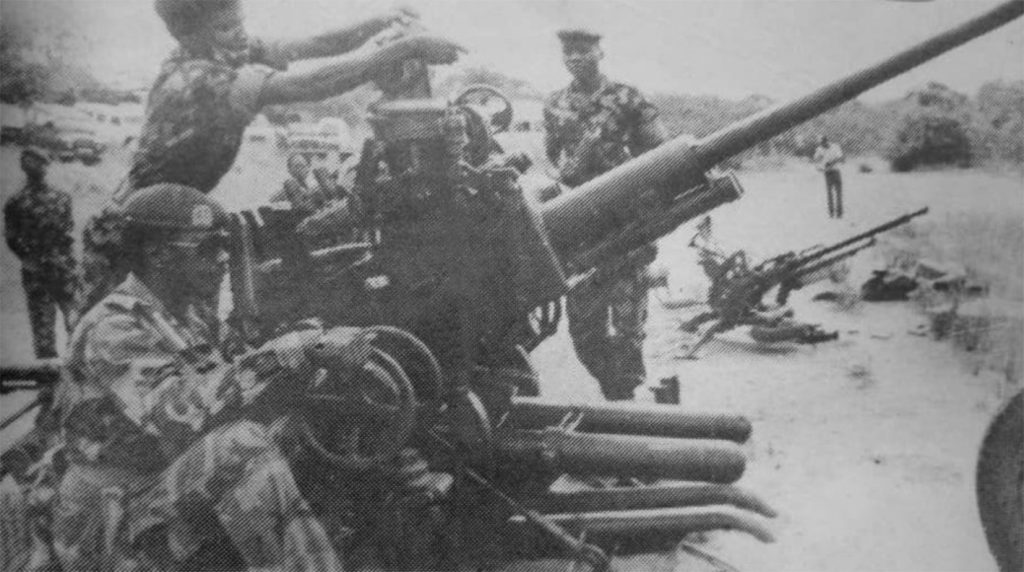
In 1981, Saleh’s loyalty to his family and cause placed him in direct danger. At a Uganda National Liberation Army roadblock in Kireka, he intervened to rescue Museveni and family members who were being detained under orders for possible assassination. This act resulted in his arrest and severe beating at Mbuya barracks. He was later released but soon re-arrested following the failed National Resistance Army raid on Kabamba. Detained for several months in Moroto, he eventually escaped with assistance from Major Dora Kutesa and then-Lieutenant Edward Katumba Wamala, joining the guerrilla war in the bush.
As deputy commander of the NRA’s First Mobile Force, Saleh became a central figure in key operations during the Luweero Triangle campaign. On February 21, 1982, he led an attack on a heavily fortified UNLA detachment at Bukalabi Primary School. In the midst of battle, a bullet fractured both his arms, causing severe bleeding, but his leadership persisted. The battle became emblematic of his determination and the risks faced by NRA fighters.
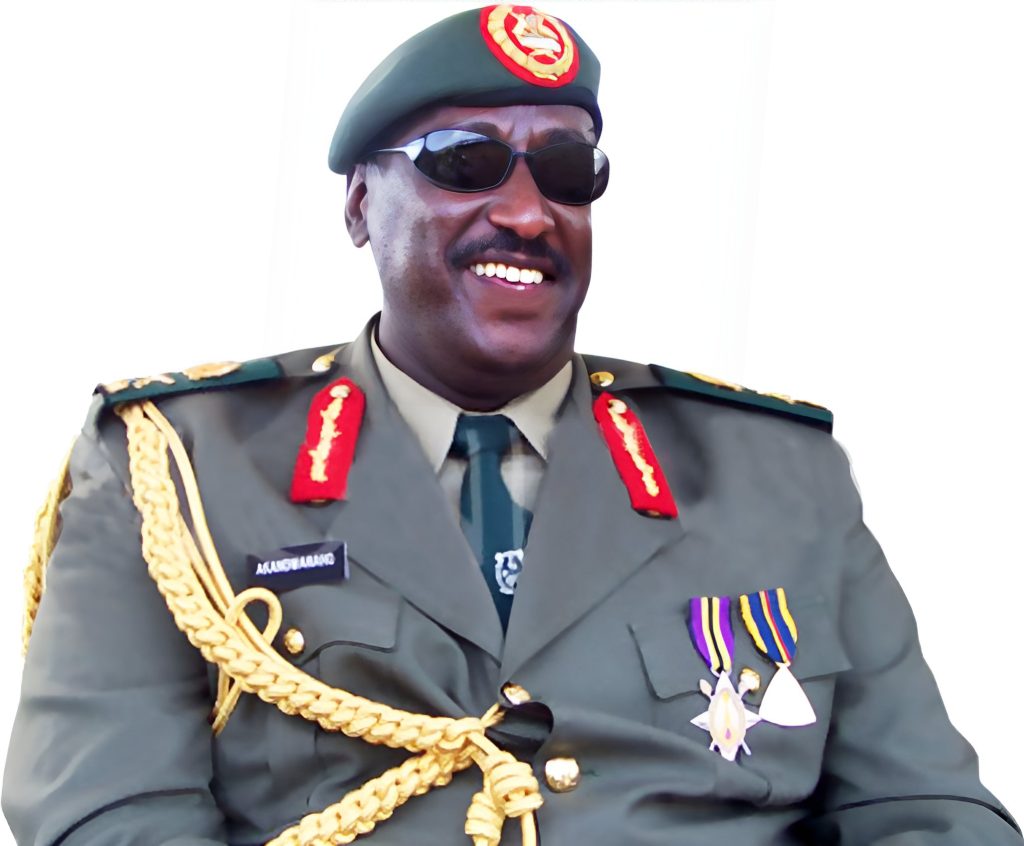
In subsequent years, Saleh played critical roles in the capture of Kakiri, Masindi, and Kabamba, securing large caches of weapons. His reputation as a fearless and resourceful commander grew, and he became integral to the NRA’s urban offensive that culminated in the fall of Kampala in January 1986. Following the victory, he was tasked with overseeing disarmament, demobilisation, and reintegration of former combatants, a vital process for national stability.
In 1987, Saleh succeeded Elly Tumwine as Army Commander of the Uganda People’s Defence Force, holding the position until 1989. His tenure focused on professionalising the force and integrating diverse elements into a unified command. Redeployed to head the Reserve Forces later that year, he oversaw a major troop reduction from 100,000 to 60,000 by 1994 and worked on welfare programmes for 40,000 demobilised soldiers, including vocational training and small enterprise support.
In the mid-1990s, during renewed insurgencies in Northern Uganda, he mobilised 15,000 Reserve Forces troops to support operations against rebel groups. Recognising the limits of military solutions, he initiated agricultural marketing programmes, particularly in sesame seed production, and championed value addition to boost local economies. This combination of security operations and economic recovery would become a hallmark of his approach.
The 2003 peacebuilding efforts in Northern Uganda brought Saleh into direct contact with communities traumatised by the Lord’s Resistance Army insurgency. As part of the Presidential Peace Team, he worked on encouraging defections among LRA fighters and promoting reconciliation. At a cleansing ceremony for former abductees in Gulu, he was visibly moved by the testimonies of children who had suffered in captivity. He called for greater involvement of traditional leaders in peace processes, arguing that their cultural authority was vital to conflict resolution.
In politics, Saleh’s role extended beyond military and peace missions. In the 2001 elections, he actively campaigned for President Museveni, mobilising support among youth, veterans, and marginalised communities. That same year, he was elected as one of the UPDF representatives in the seventh Parliament, where he advocated for veterans’ welfare, support for small businesses, and local ownership of strategic assets.
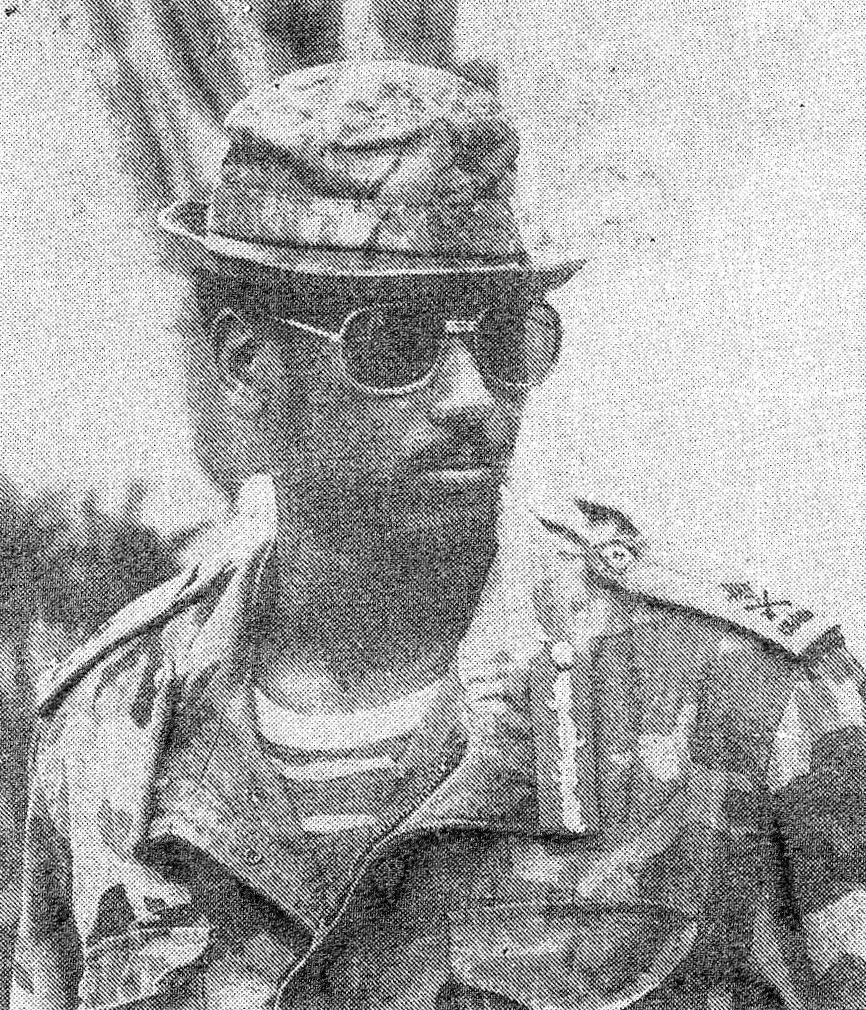
His parliamentary tenure also coincided with personal and professional challenges. He faced scrutiny over past business dealings, pledged transparency, and engaged in high-profile entrepreneurial ventures, including a coffee development project aimed at organising farmers into cooperatives for specialty markets. Health issues, including an unsuccessful arm surgery in Uganda, required treatment abroad. While recovering in Germany, he promoted Ugandan coffee to international buyers.
In 2002, rumours of his death spread widely while he was abroad. On his return to Uganda, hundreds gathered at Entebbe Airport to welcome him, and he addressed the crowd with the remark, “A dead man cannot talk.” Similar false rumours resurfaced in 2022 but were quickly dispelled.
From 2006 to 2008, Saleh served as Minister of State for Microfinance, focusing on grassroots economic empowerment before resigning due to bureaucratic constraints. In his capacity as Senior Presidential Adviser on Defence and Security, he became chief coordinator of Operation Wealth Creation, a programme aimed at reducing poverty and supporting household incomes through agricultural and small business initiatives.
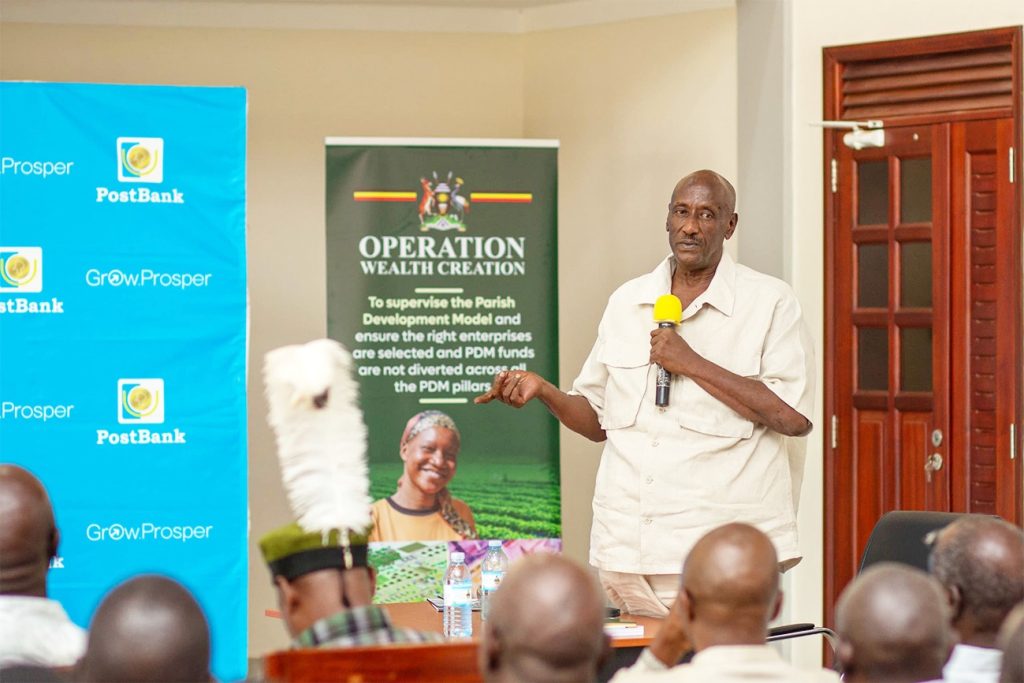
His contributions extend to the creative sector, where since the early 2000s he has supported musicians and cultural events. In 2005, he mediated between rival musicians Chameleone and Bebe Cool, restoring peace within the music community. He has sponsored competitions, honoured bands such as Afrigo, and invested in cultural preservation. During the COVID-19 pandemic, he facilitated relief packages worth over nine billion Ugandan shillings for musicians, DJs, bouncers, and promoters. Although some of the funds were reportedly misused by intermediaries, Saleh responded by encouraging the formation of associations such as the Uganda National Musicians Federation to ensure accountability and direct access to support.
In April 2025, he was publicly recognised by President Museveni during Peace Day celebrations in Yumbe District for his role in securing peace in the West Nile sub-region, commemorating the 23rd anniversary of the peace agreement with the Uganda National Rescue Front II. Today, General Salim Saleh’s life reflects a complex blend of soldiering, political service, economic innovation, humanitarian outreach, and cultural engagement. Admirers describe him as a practical problem-solver who works directly with communities, while critics continue to question the scope and accountability of his influence. Through decades of Uganda’s shifting fortunes, he has remained an enduring and often enigmatic figure in the nation’s story.
Updated on August 16, 2025

